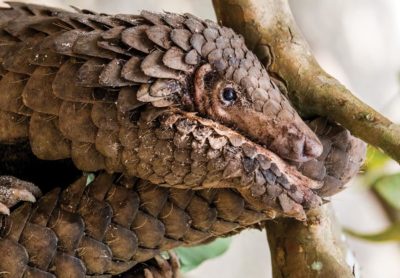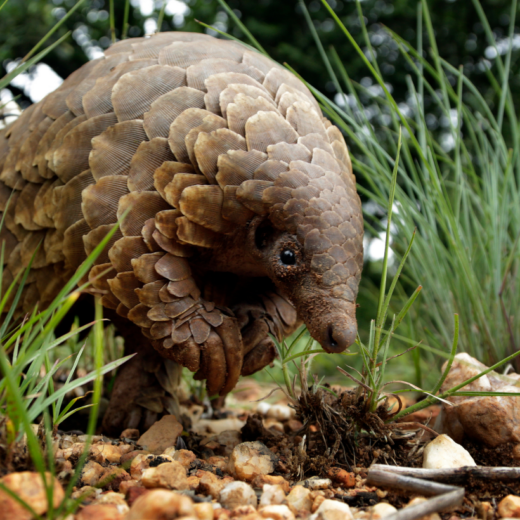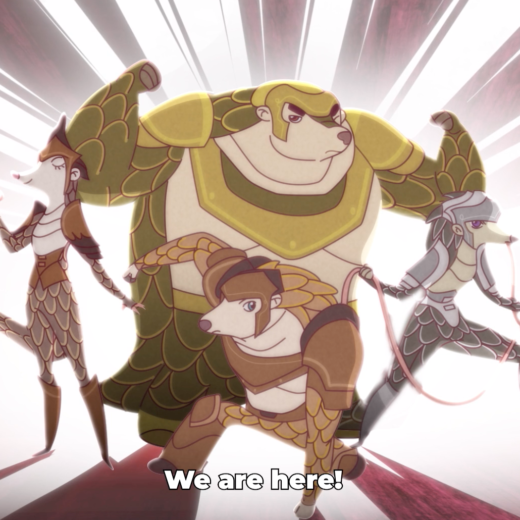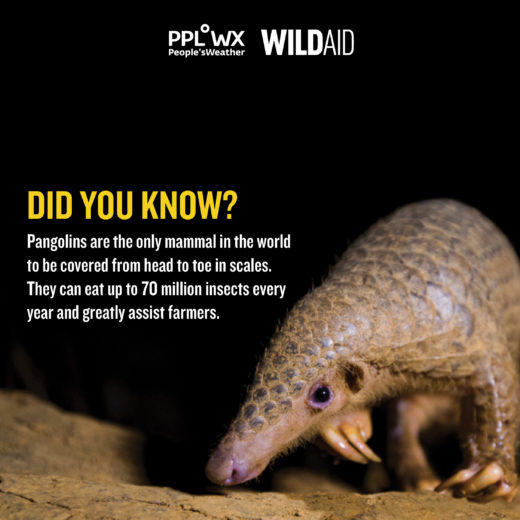
Good news! Today, the UN Convention on International Trade in Endangered Species of Wild Fauna and Flora (CITES) has voted to protect all eight species of pangolins – small and reclusive scaly mammals being driven to near extinction by unsustainable poaching. Pangolins will be uplisted to CITES Appendix I, which bars international trade and provides for better domestic protection in key countries such as Vietnam and China.
“Rarely has CITES been so united. This action today was much-needed if pangolins are to survive and may be one of the most important outcomes of this meeting,” WildAid CEO Peter Knights said from the CITES Conference of the Parties in Johannesburg. “That these proposals to protect pangolins came from countries like Vietnam and were passed with near-unanimous support is highly encouraging. The challenge now is law enforcement and demand reduction, but the uplisting will help both. Penalties will now be much higher in key countries.”
WildAid is already engaged in reducing demand in China and Vietnam in celebrity led campaigns and has released footage of pangolin capture and trade. Our report Pangolins: On the Brink identifies consumer demand for pangolin scales and meat as the primary driver of the eight pangolin species’ sharp decline throughout Africa and Asia.
Demand for pangolin scales (used in Traditional Chinese Medicine) as well as pangolin meat, considered by some as a delicacy, is highest in China and Vietnam. Though there is no scientific evidence to support alleged curative properties or the keratin scales, a 2015 WildAid survey found that 70% of Chinese believe pangolin products have medicinal value; scales are used to “cure” rheumatism, skin disorders and wound infections. In Vietnam, 64% of survey respondents said they had heard about the “curative” properties of pangolin scales.
Pangolins are especially vulnerable to poaching because of their slow reproductive rate, their sensitivity to capture-induced stress and an instinct to curl into a ball when threatened, rather than try to escape. Because of a specialized diet pangolins are very hard to maintain in captivity; commercial breeding is not a viable means of supply.
Stay in touch and get the latest WildAid updates.
SIGN UPAbout WildAid
WildAid is a non-profit organization with a mission to protect wildlife from illegal trade and other imminent threats. While most wildlife conservation groups focus on protecting animals from poaching, WildAid primarily works to reduce global consumption of wildlife products such as elephant ivory, rhino horn and shark fin soup. With an unrivaled portfolio of celebrity ambassadors and a global network of media partners, WildAid leverages more than $308 million in annual pro-bono media support with a simple message: When the Buying Stops, the Killing Can Too.
Journalists on deadline may email communications@wildaid.org


